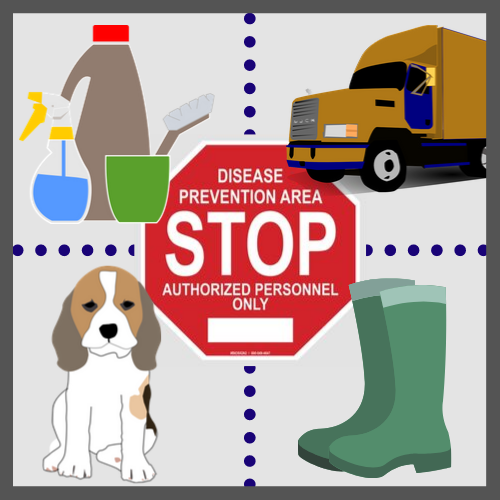



Article by: Hari Yellina
Despite the fact that foot-and-mouth disease is currently making news, Australian experts warn that there are other diseases that we should be on the lookout for. These are the upcoming significant threats, according to experts, some of which have already materialised. Australian biosecurity officers confirmed the presence of the mosquito-borne virus at 70 pig farms in Victoria, Queensland, and New South Wales in February 2022. Since then, there have been 40 human cases, and five people contracted the illness and passed away in 2017. JEV was discovered in Japan for the first time in 1871, and it has since spread across South-East Asia and the Western Pacific.
Associate professor Peter Murray from the University of Southern Queensland claimed it had a terrible effect on infected pigs. According to him, “it causes all kinds of things, like mummified piglets at birth and neurological illnesses in the pigs throughout the first year of life.” According to Dr. Murray, this winter’s unprecedented rains provided the “perfect storm” for JEV to spread and could result in more human illnesses. “We’re about to enter the warmer part of the year, which will increase the possibility that mosquitoes will reproduce,” he explained. “And because of climate change, which is causing warmer settings, those mosquitoes will migrate further south.”
It’s now sort of bubbling away and could go really bad.For humans, there is a JEV vaccination. The creation of a pig vaccination has begun. The viral illness can cause skin lesions, fever, appetite loss, decreased milk output, and even mortality in cattle and water buffalo. The illness, which was formerly exclusive to Africa, has since spread to China and South-East Asia, with instances being reported in March 2022 on the Indonesian island of Sumatra. Tim Mahony, a professor at the University of Queensland, described it as one of the “clear and present hazards” facing Australia’s agricultural sector. We would witness a shutdown of animal populations “if it were to make it to the mainland and infect sensitive species,” he claimed.
It spreads mostly through insect-borne means, which makes it challenging to eradicate in some places. According to Dr. Mahony, the disease may also cause Australia’s cattle export sector to collapse. In an effort to stop the spread of LSD, interim restrictions were issued by Thailand and Russia last year. Australia has not yet approved the use of an LSD vaccination. However, Chris Parker from the federal Department of Agriculture recently informed the West Australian Country Hour that efforts were being made to supply a secure vaccination. LSD outbreaks have not yet been reported in Australia.